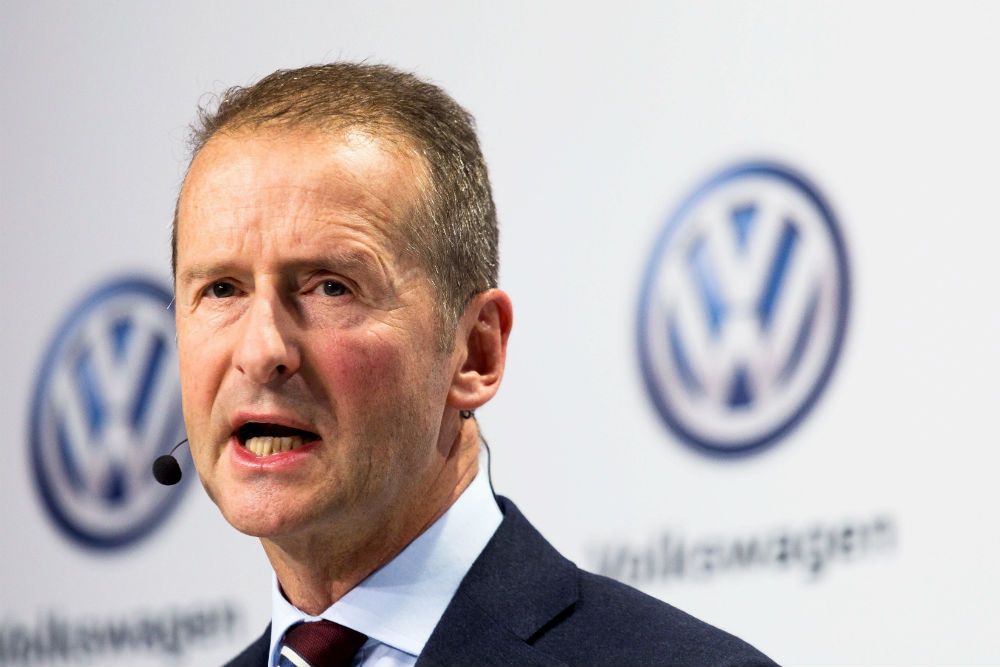Volkswagen is looking if it has the resources to develop electric platforms for smaller cars while investing billions in transforming its mainstream vehicles at a time it faces a short-term investment crunch.
EU lawmakers are proposing a 50 percent cut in carbon dioxide emissions by 2030.
Volkswagen needs to free up cash to develop connected and autonomous vehicle technology and new forms of mobility services.
Consequently, the company is reviewing the future of its high-performing Lamborghini, Bugatti, and Ducati. It also owns VW, Porsche, Audi, Seat, Skoda, and several trucks.
Unlike many other more liquid US firms that can tap deeper capital markets to raise money, Volkswagen relies more on sales of combustion-engine cars to finance its shift to electric vehicles.
Last year, the conglomerate sold 4,554 Lamborghinis, which start at about $200,000, 82 seven-digit priced Bugattis, and over 53,000 Ducati motorbikes.
CEO Herbert Diess acknowledged that Volkswagen needed to reinvent itself in order to succeed with the plan.
Because Volkswagen has more brands, analysts say it is less efficient and has higher costs.
Volkswagen Group employed 671,205 as of the end of 2019.
In contrast, Toyota had a staff of 359,542 staff at the end of its last financial year.
Volkswagen's 78 billion euro valuation is far below Toyota’s $187 billion, even though it sold 10.96 million cars, the most by any carmaker in the world.
Toyota came in second with 10.74 million.



 FDA Targets Hims & Hers Over $49 Weight-Loss Pill, Raising Legal and Safety Concerns
FDA Targets Hims & Hers Over $49 Weight-Loss Pill, Raising Legal and Safety Concerns  OpenAI Expands Enterprise AI Strategy With Major Hiring Push Ahead of New Business Offering
OpenAI Expands Enterprise AI Strategy With Major Hiring Push Ahead of New Business Offering  Global PC Makers Eye Chinese Memory Chip Suppliers Amid Ongoing Supply Crunch
Global PC Makers Eye Chinese Memory Chip Suppliers Amid Ongoing Supply Crunch  SoftBank Shares Slide After Arm Earnings Miss Fuels Tech Stock Sell-Off
SoftBank Shares Slide After Arm Earnings Miss Fuels Tech Stock Sell-Off  Innovent Biologics Shares Rally on New Eli Lilly Oncology and Immunology Deal
Innovent Biologics Shares Rally on New Eli Lilly Oncology and Immunology Deal  TrumpRx Website Launches to Offer Discounted Prescription Drugs for Cash-Paying Americans
TrumpRx Website Launches to Offer Discounted Prescription Drugs for Cash-Paying Americans  Samsung Electronics Shares Jump on HBM4 Mass Production Report
Samsung Electronics Shares Jump on HBM4 Mass Production Report  Missouri Judge Dismisses Lawsuit Challenging Starbucks’ Diversity and Inclusion Policies
Missouri Judge Dismisses Lawsuit Challenging Starbucks’ Diversity and Inclusion Policies  SpaceX Prioritizes Moon Mission Before Mars as Starship Development Accelerates
SpaceX Prioritizes Moon Mission Before Mars as Starship Development Accelerates  Once Upon a Farm Raises Nearly $198 Million in IPO, Valued at Over $724 Million
Once Upon a Farm Raises Nearly $198 Million in IPO, Valued at Over $724 Million  Uber Ordered to Pay $8.5 Million in Bellwether Sexual Assault Lawsuit
Uber Ordered to Pay $8.5 Million in Bellwether Sexual Assault Lawsuit  Amazon Stock Rebounds After Earnings as $200B Capex Plan Sparks AI Spending Debate
Amazon Stock Rebounds After Earnings as $200B Capex Plan Sparks AI Spending Debate  Toyota’s Surprise CEO Change Signals Strategic Shift Amid Global Auto Turmoil
Toyota’s Surprise CEO Change Signals Strategic Shift Amid Global Auto Turmoil  SpaceX Pivots Toward Moon City as Musk Reframes Long-Term Space Vision
SpaceX Pivots Toward Moon City as Musk Reframes Long-Term Space Vision  Taiwan Says Moving 40% of Semiconductor Production to the U.S. Is Impossible
Taiwan Says Moving 40% of Semiconductor Production to the U.S. Is Impossible  Rio Tinto Shares Hit Record High After Ending Glencore Merger Talks
Rio Tinto Shares Hit Record High After Ending Glencore Merger Talks  Indian Refiners Scale Back Russian Oil Imports as U.S.-India Trade Deal Advances
Indian Refiners Scale Back Russian Oil Imports as U.S.-India Trade Deal Advances 































